Between site-specific analytics built into platforms like Facebook and Twitter, and hashtag search engines, like Tagboard, a manager could reasonably piece together the frequency and influence or users participating in their multi-network social media campaign. However, why do all of that legwork when Keyhole will do it for you? For a monthly cost, the social media listening tool collects Facebook, Twitter and Instagram activity information in one location and gives users the ability to perform targeted searches on users and content. Armed with information on who is responding to campaigns and how, managers can better craft targeted outreach efforts and increase the likelihood of engagement.
Identify users and influencers
Discovering who is engaging with content, whose engagement would expand the influence of content, and who is looking to engage is rarely easy. Keyword searches in Keyhole return a list of users who have used that keyword in a recent post, as well as their available profile information. Keyhole members can then narrow those users based on industry, activity frequency, or follower count. For an additional cost, upgraded memberships provide even more features to read user data, like the ability to sort by user bio. Keyhole members can also search for, or ignore content by specific users.
Testing the tool, I ran a quick search for #pippinmusical, a popular hashtag for the national tour of Pippin the Musical. A number of users returned were presenting organizations and ticket sellers. Because I'm more interested in what individual users are saying I chose to exclude posts by these specific presenting organizations and ticket sellers. Happily, Keyhole generated a revised list of only individuals.
Keyhole also suggests that the savvy searcher can craft a multi-keyword search so targeted it can return users who are seeking to engage the organization or its content, but haven't yet. This intriguing possibility would enable Keyhole members to target inclined users and actively reach out to them. While this seems possible, it would mean that the Keyhole member would have to compile a list of (hopefully) relevant keywords and regularly search those keyword combinations to discover a worthwhile lead. For instance, the Keyhole member might search for phrases like "looking," "interested," and "want" coupled with campaign keywords or hastags, like #pippinmusical. While possible, this advanced usage would take some skill and intuition to move consistent audience recruitment using this technique from an art to a science.
Perform Targeted Searches
Speaking of targeting search efforts, Keyhole gives users other options to refine hashtag, user, or keyword searches to reduce the collection of irrelevant information. For instance, in addition to the singular word searches Keyhole can apply "2nd level search terms" to filter results by 2+ keywords. Users can also tell Keyhole to collect or ignore results with noted keywords. Keyhole members can also filter search results by date, as well as Klout score, when applicable.
Share, download, and report data
The majority of Keyhole's reports, like geographic origin of user content and vehicle used to participate in social media (for example an andriod cell phone), are downloadable as a CSV file as well as shareable through a link. Keyhole also lets members embed links in websites, allowing data and associated visualizations to update in real-time. Other reporting categories include timeline, top posts, top sites (used to publish the content), share of posts (original, shared, or replies), most influential users, most recent users, gender demographics, and a word cloud. For images of each see the gallery below.
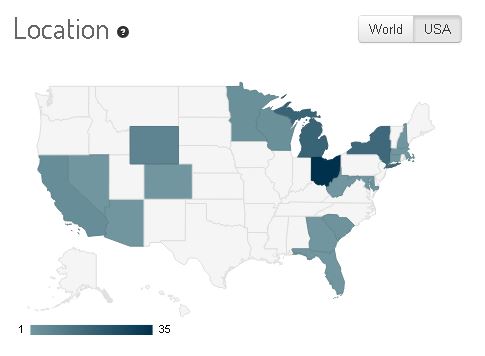
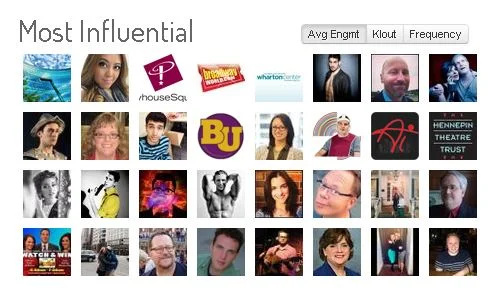
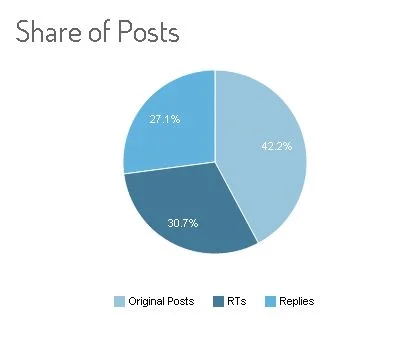
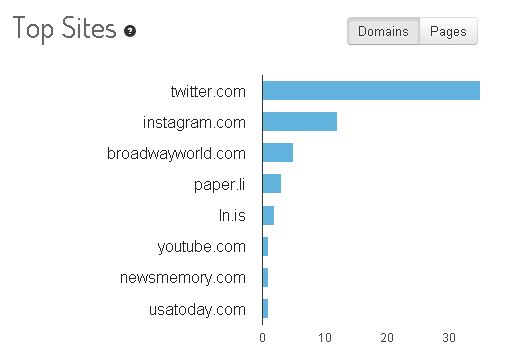
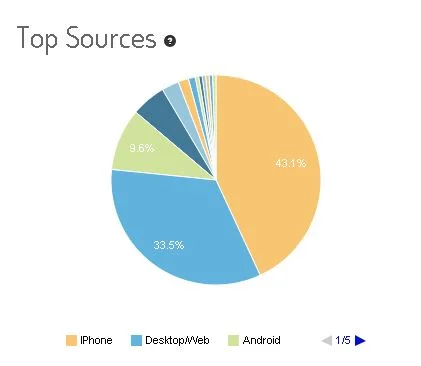
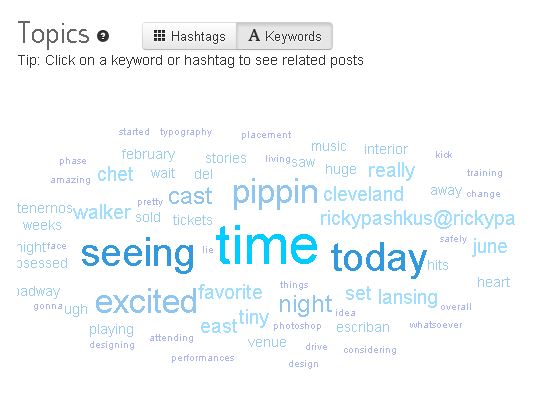
Overall, Keyhole offers some unique advantages in social media monitoring compared to the analytic services offered by Facebook and Twitter. Membership plans range from $116/month to $2,700/month. Keyhole also offers a free, 3-day trial. Additional discounts for nonprofits may be available by contacting info@keyhole.co directly. Since Keyhole can perform targeted searches, the service is best used to monitor activity around specific topics and keywords, rather than a routine check-up of a social media participation. Some examples of an ideal application might be monitoring a new exhibition, performance or marketing campaign. Keyhole would be a valuable asset for managers coordinating a social media campaign across social media networks and who may be running multiple campaigns at once.



